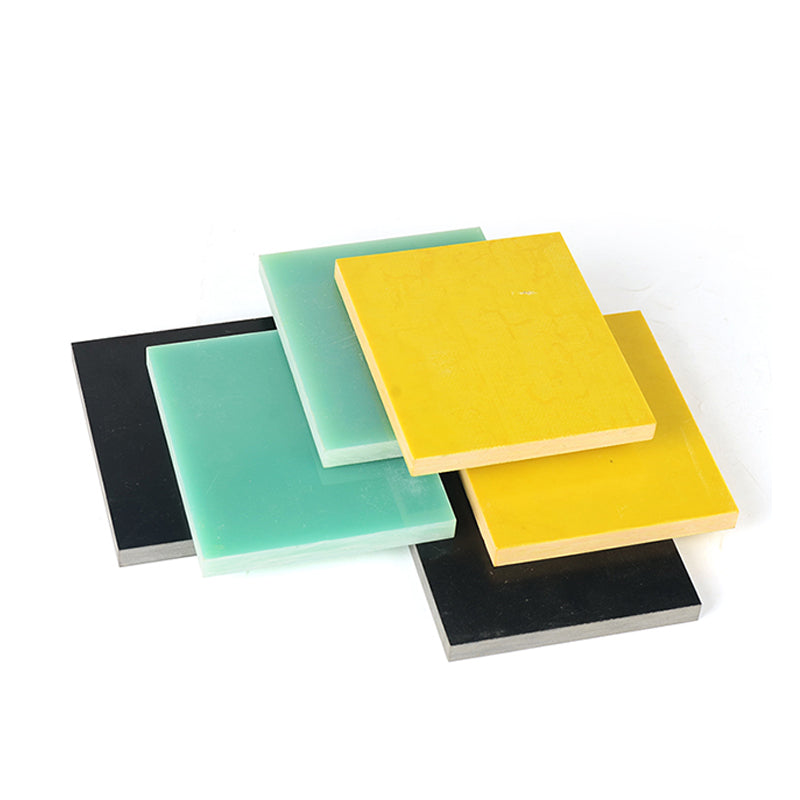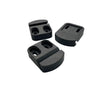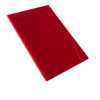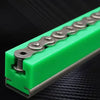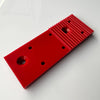Custom Plastic Manufacturing: Capabilities for Nylon and Other Materials
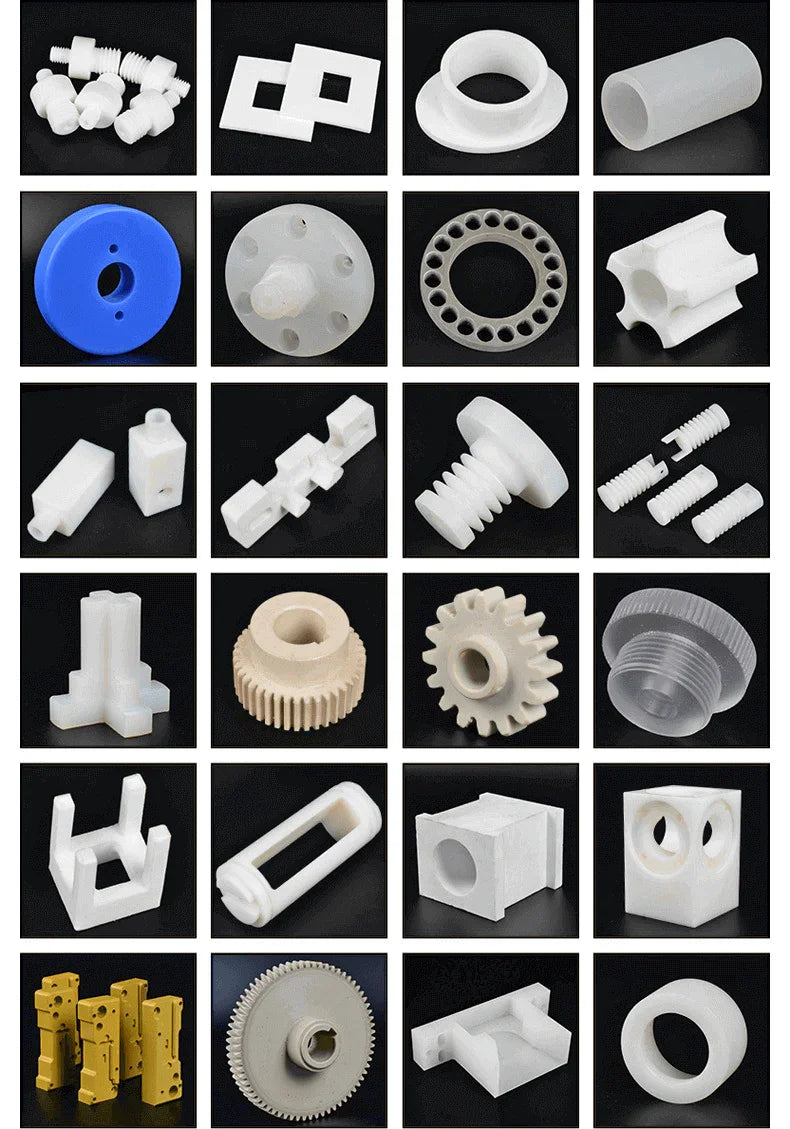
Plastic manufacturing has become an indispensable part of product development across countless industries. From automotive to aerospace, medical devices to consumer goods, plastics play a vital role.
🎉🎉🎉Limited Time Offer Use code: QR4GNY08SHVR at checkout and enjoy a special discount on your entire order! 👉 Nylon plastic
With such a vast range of applications, off-the-shelf plastic components are not always suited for a company's specific needs. This is where custom plastic manufacturing comes in - the ability to fabricate plastic parts tailored to unique specifications and requirements.
For engineers and product developers, partnering with a custom plastic manufacturer unlocks new levels of design flexibility and functionality. Materials can be chosen based on performance needs, part geometries can be fully customized, and secondary operations like machining, coating, and finishing can be incorporated.
This guide will explore the capabilities of working with a custom plastic manufacturing partner. We'll focus on services for nylon as well as other commonly used engineering plastics like polycarbonate, polypropylene, ABS, PVC, and polyethylene.
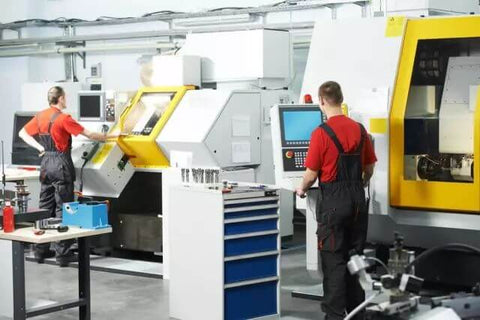
Benefits of Custom Plastic Manufacturing
Choosing custom-designed and manufactured plastic components over off-the-shelf parts brings key advantages:
Flexibility and Customization
With custom plastic molding and fabrication, parts can be tailored to meet exact mechanical, dimensional, and aesthetic requirements. Complex geometries, textures, and features can be incorporated that would not be possible with stock components.
Parts can also be consolidated, reducing the number of separate components needed in an assembly. This simplifies the overall design and improves reliability.
Material Selection
While nylon and other engineering plastics have broad use, they are not suitable for every application. Custom manufacturing opens up more choices like ABS, PVC, polyethylene, and beyond. The optimal plastic can be selected based on temperature resistance, chemical compatibility, electrical properties, and other factors.
Cost-Effectiveness
Although custom tooling is required, plastic injection molding and other processes offer economical per-part costs at production volumes. Creatively designed parts can also replace complex assemblies, reducing long term costs.
For low-volume production runs, custom plastic molding avoids the high initial tooling investment while still benefiting from the efficiency of molding.
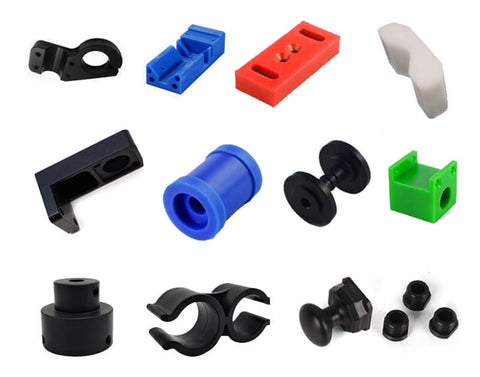
Capabilities for Nylon Manufacturing
Known for its strength, wear resistance, and dimensional stability, nylon is one of the most commonly used engineering thermoplastics. From mechanical parts to plastic fasteners, custom manufacturing offers extensive capabilities with this versatile material.
Custom Nylon Molding and Fabrication
All standard plastic molding processes can be applied to produce custom nylon parts:
- Injection molding: Highly repeatable and efficient for complex, high-precision plastic parts in medium to high quantities.
- Extrusion: Creates long plastic profiles with tight dimensional tolerances. Useful for tubes, rods, seals and more.
- Blow molding: Hollow, thin-walled container shapes like bottles and tanks can be blow molded from nylon.
- Thermoforming: Flexible process for producing shallow parts like trays and shrouds from nylon sheet.
Parts can also be machined from nylon stock shapes for prototypes or low volume applications.
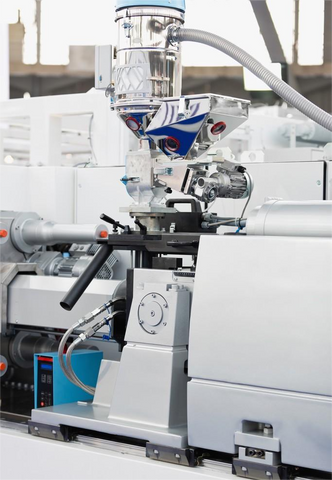
Nylon Extrusion, Injection Molding, Machining
For high reliability parts, custom nylon injection molding is recommended over extrusion. Injection molding provides:
- Consistent material properties throughout the part thickness.
- Ability to mold complex geometries not possible with extrusion.
- Excellent mechanical properties in all directions.
When combined with additional CNC machining and finishing, injection molding is ideal for small-scale manufacturing projects that require tight tolerances, precise features, and specified material grades.
Nylon extrusion is best suited for high volume, less complex applications where the plastic profile shape matches the desired part geometry. This is an economical option for long tubes, rods, and basic custom shapes.

Ideal for Durability and Wear Resistance
With its inherent lubricity, toughness, and abrasion resistance, nylon excels in wear-intensive applications like bearings, bushings, rollers, and gear teeth. The material avoids the need for external lubrication.
Nylon's excellent fatigue endurance also suits it for flexible components and applications involving repeated cyclical stresses.
Common examples include consumable prototype parts for field testing, jigs and fixtures for manufacturing operations, and functional plastic components for harsh service environments.
Custom nylon injection molding combined with secondary machining operations produces durable, complex parts with the wear resistance needed for long service life under demanding conditions.
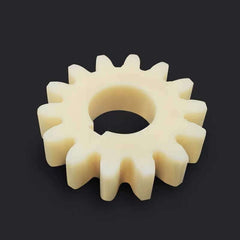
Capabilities for Other Common Plastics
While nylon covers many general engineering needs, other plastics provide specialized properties. Custom manufacturing gives product designers access to these materials.
Polycarbonate
- Custom polycarbonate molding is ideal for transparent, impact-resistant components like lighting lenses, protective covers, and screens.
- Stable at higher temperatures than many plastics, important for sterilizable medical and laboratory equipment.
- Flame retardant grades available.
- Often combined with secondary CNC machining for precision.
Polypropylene
- Low density, high chemical resistance, non-toxic properties suit polypropylene for food/drug-contact applications.
- Injection molding, extrusion, and thermoforming capabilities.
- Flexible, living hinge properties when co-molded with polypropylene elastomer grades.
- Easy to color - useful for consumer goods.
ABS Plastic
- Custom ABS plastic molding options include injection molding and extrusion.
- Useful for enclosures, mechanical parts, automotive trim components.
- Toughness and dimensional stability.
- Stylish, colorable surface finishes.
PVC
- PVC plastic molding produces chemical, corrosion resistant parts.
- Clear grades useful for visualization.
- Foamed PVC alternatives available.
- Often combined with custom machining.
Polyethylene
- Custom polyethylene molding via injection molding and blow molding.
- Flexible, chemical resistant, buoyant.
- Ideal for bottles, drums, tubing, and tanks.
- Colorants and fillers easily added.
With experience across all common plastics, a custom manufacturer can help select the optimal material for an application based on temperature, chemical, electrical, mechanical, and aesthetic requirements.
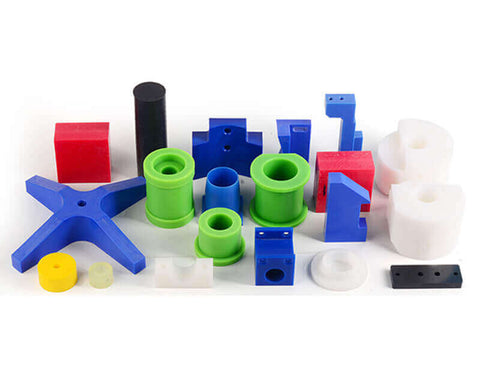
Secondary Capabilities Expand Possibilities
To produce finished plastic components often requires more than just the initial molding process. Custom plastic manufacturing providers offer a range of secondary services that eliminate the need for working with multiple suppliers:
Prototyping
Ideally, custom plastic parts are designed for optimized manufacturability and performance from the start. A prototyping stage helps achieve this by identifying potential design and tooling improvements early on.
Capable manufacturers offer in-house custom plastic prototyping using 3D printing, CNC machining from plastic stock, and other fast methods. This provides hands-on testing of early concepts before investing in hard tooling.
Machining
Milled, drilled, and tapped holes, slots, threads, and precision features can be added via custom CNC machining. This augments the geometric possibilities of molded parts. Machining also improves dimensional tolerance control.
Plastic welding fuses molded components into larger assemblies and adds molded-in inserts and fasteners. Vibration, spin, and hot plate welding options are available.
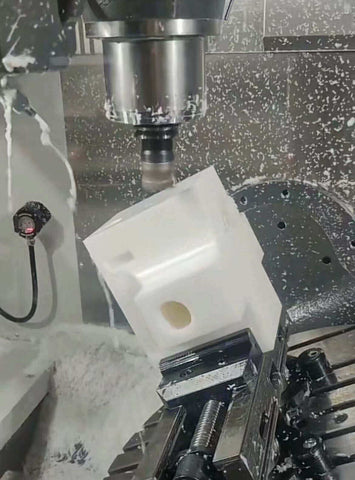
Finishing
From basic cleanup to decorative enhancements, plastic parts often benefit from custom finishing operations:
- Media blasting removes mold release agents and improves surface adhesion for printing or bonding.
- Vapor smoothing eliminates fine tooling marks.
- Precision holes can be reamed and honed to exact tolerances.
- Decorative chrome plating or anodizing improves abrasion resistance and aesthetics.
Custom plastic coating via painting, powder coating, wet coating, and plating provides color and improves wear and chemical resistance.
Applications Across Industries
The versatility of custom manufactured plastic parts makes them invaluable across industries. Here are just a few examples:
- Automotive: Engine and interior components, ducting, covers, fasteners.
- Aerospace: Interiors, seats, non-structural aircraft parts.
- Medical: Diagnostic equipment housings, handles, precision instruments, fluid system components.
- Electronics: Connectors, encapsulations, insulators, bobbins, reels.
- Industrial: Material handling equipment, maintenance tools, jigs, fixtures, guards, knobs, and dials.
- Consumer Goods: Appliance parts, sporting goods, furniture, cases, crates, packaging.
Any application that benefits from the reduced weight, resistance to chemicals and corrosion, electrical insulation, and low-cost manufacturability of plastics is a candidate for custom plastic manufacturing.

Partnering with the Ideal Manufacturer
Connecting with the right custom plastic manufacturing partner ensures a smooth project and optimized results. Use this checklist when evaluating capabilities:
- Broad Plastic Material Experience: Look for expertise across nylon, acetal, ABS, polycarbonate, PVC and other engineering resins. Plastics have unique processing nuances - a specialty shop may be too limited.
- Range of Services: Seek secondary operations like CNC machining, finishing, painting, chrome plating, elastomer overmolding, and assembly. This simplifies the supply chain.
- Prototyping: Rapid in-house prototyping shows commitment to engineering development. Testing early prototypes reduces risk and prevents problems.
- Small and Large Production Capabilities: Custom plastic manufacturing providers should be equipped for both short prototyping runs and higher volume production. This avoids sourcing changes down the road.
- Vertically Integrated: Molding and secondary services should ideally be handled under one roof for quality control and efficiency. Shipping parts externally introduces variability and delays.
- Experience with Custom Projects: Evaluate experience working on other unique plastic designs across industries. Look for complex problem solving skills - not just commodity production.
- Engineering Collaboration: Partner with an organization that engages directly with product engineering teams. This ensures manufacturability and optimizes the end design.
Before selecting a custom plastic manufacturing source, request technical reviews of the application and participate in upfront prototyping. This establishes confidence and aligns expectations for the project early on.
Custom Plastic Parts Unlock Potential
This overview of custom manufacturing capabilities illustrates the versatility and value of producing plastic components tailored exactly to application requirements. More can be accomplished through specially engineering plastic parts than off-the-shelf catalog components allow.
Partnering with an experienced custom manufacturer unlocks the potential to improve designs by consolidating assemblies, enhancing functionality, reducing weight, and optimizing material performance.
From initial prototyping through full-scale production, custom plastic fabricators offer the experience and services to meet the needs of innovative product development teams across industries.
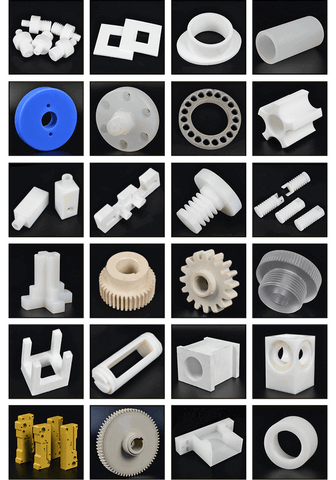
-
Posted in
ABS, custom plastic manufacturing, nylon, plastic processing, polycarbonate

